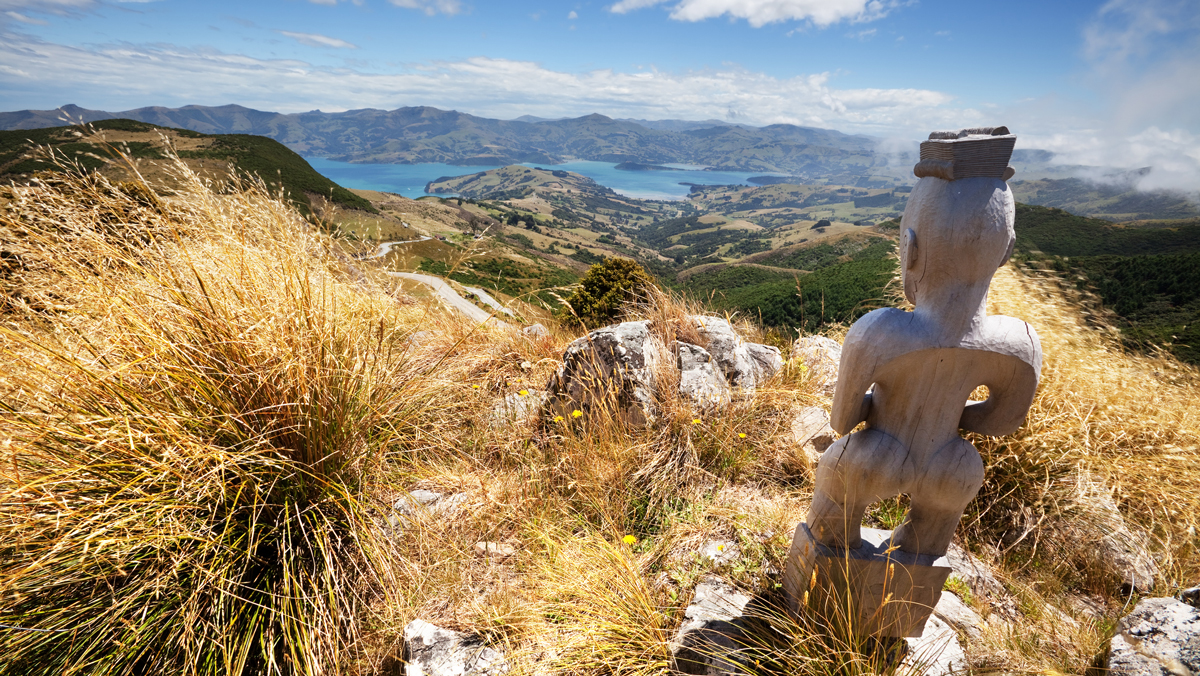Bridging Modern Science and Ancient Traditions
DIALOGUE

August 2022
Volume 76, No. 7

 Indigenous knowledge, handed down through generations, articulates one’s worldview and overall being. For the Māori of New Zealand, this is called mātauranga: a unique body of knowledge from a Māori worldview, which incorporates Māori traditional knowledge, language, practices, and culture.
Indigenous knowledge, handed down through generations, articulates one’s worldview and overall being. For the Māori of New Zealand, this is called mātauranga: a unique body of knowledge from a Māori worldview, which incorporates Māori traditional knowledge, language, practices, and culture.
And now, within New Zealand, mātauranga is being recognized as a core component across all science sectors, including Western priorities surrounding environmental, health, social, and economic impact. This commitment to link ancient knowledge with modern science is rooted in Vision Mātauranga, a government policy that in 2007 advocated for Māori to make distinctive contributions to research, science, and technology.
Vision Mātauranga “unlocks the science and innovation potential of Māori knowledge, resources, and people” and remains the guiding policy for the New Zealand Ministry of Business, Innovation and Employment. This policy is also a founding component for the 11 New Zealand National Science Challenges established in 2014.
This commitment is not without its challenges. The notion of bridging modern science with ancient traditions can be tense.
Recent controversy in New Zealand had a small number of academics note publicly that while “indigenous knowledge may play some role in the preservation of local practices and in management and policy”—it “falls far short of what can be defined as science itself.” They also said mātauranga Māori should not be accepted as an equivalent to science, adding “it may help ... but it is not science.”
The impact these controversies have on day-to-day relationships between the Māori and science can be long term, and the time required to mend and rebuild relationships can be devastating. Yet they have also provided a platform for collaboration to recognize the importance of mātauranga Māori within Western science. It is increasingly a mandatory requirement for funding applications to governmental and nongovernmental organizations to address how they are approaching and incorporating aspects of Vision Mātauranga into their proposals.
The National Science Challenge – High-Value Nutrition/Ko Ngā Kai Whai Painga is intentionally structured to include both a co-chair Māori role and Vision Mātauranga leader. The Challenge works with Māori business and taonga (treasured) Māori species and provides a central place for business, mātauranga, and science to work together.
Take for example, Atutahi, a lightly carbonated range of drinks created by Kiwi Kai Ltd. that uses Aotearoa New Zealand native leaf (Horopito, Kumarahou, and Kawakawa). Māori have used these leaves to enhance health or treat minor ailments for generations. It is only now, through projects such as this, that this knowledge is being recognized and brought together with new scientific methods to validate health outcomes and inform future innovation, regulatory systems, and the potential for growth of Māori-owned businesses. The project enables this company to combine mātauranga Māori practices with Western science to lead, create, and deliver high-value New Zealand native leaf–derived beverages.
Our commitment to bringing together indigenous knowledge and Western science manifests in other efforts, as well:
- Developing Māori science and innovation capability through partnerships
- Fostering connections between Māori, government, the science system, and industry to grow opportunities for Māori science and innovation
- Supporting development of tribal-led research and development strategies
- Collaborating with other agencies to develop whole-of-government approaches
- Facilitating partnerships between Māori, researchers, and firms to enhance knowledge transfer and business success.
Ours is just one specific example of bridging the divide. But New Zealand is not alone in its treasure of ancient knowledge and traditions. Similar opportunities await around the globe. What will you do to support similar dialogue and collaboration? What ancient knowledge are you ready to explore?
To Learn More
- mbie.govt.nz/science-and-technology/science-and-innovation/agencies-policies-and-budget-initiatives/vision-matauranga-policy
- nzhistory.govt.nz/politics/treaty-of-waitangi
- mbie.govt.nz/science-and-technology/science-and-innovation/funding-information-and-opportunities/investment-funds/national-science-challenges/
- rnz.co.nz/news/te-manu-korihi/447898/university-academics-claim-matauranga-maori-not-science-sparks-controversy
- highvaluenutrition.co.nz/the-science/contestables/atutahi/
The opinions expressed in Dialogue are those of the authors.
Food Technology Articles

Can Food Science and Technology Transform the Food System?
IFT President Sean Leighton reflects on the value of collaboration within the science of food discipline and highlights the value IFT FIRST will offer in this area.

Mapping Food System Innovation
Here’s a look at six clusters of cutting-edge entrepreneurship around the globe.

The State of Sensory Science
Three seasoned sensory scientists share their thoughts on the complexity of measuring consumer perceptions, the value of academic/industry collaboration, the evolution of the discipline, and why they love what they do.

The Transformative Power of Positivity
Columnist Kantha Shelke makes the case for adopting an appreciative inquiry approach to the science of food.

Investing in African Heritage Foods
Foods from the African continent, such as millet and hibiscus, are starting to trend in Western diets. WANDA cofounder Tambra Raye Stevenson says that these foods could help solve the nutrition crisis.
Recent Brain Food

A New Day at the FDA
IFT weighs in on the agency’s future in the wake of the Reagan-Udall Report and FDA Commissioner Califf’s response.
Members Say IFT Offers Everything You Need to Prepare for an Uncertain Future
Learn how IFT boosts connections, efficiencies, and inspiration for its members.

More on the FDA's Food Traceability Final Rule
In a new white paper, our experts examine the FDA’s Food Traceability Final Rule implications—and its novel concepts first proposed by IFT.
Job Satisfaction in the Science of Food is High but Hindered by Pain Points
IFT’s 2022 Compensation and Career Path Report breaks it down.
